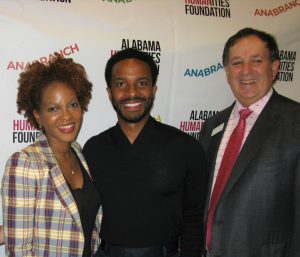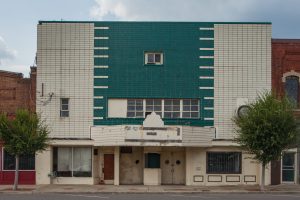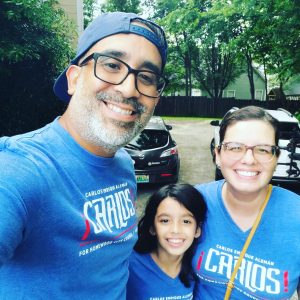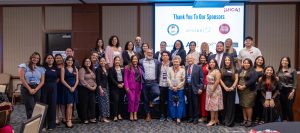
There are three things most people who know me can agree are true. I love stories, I love history, and I ask a lot of questions. As a child, this meant my parents and grandparents did a lot of talking about their experiences growing up in the decades I had missed. As a child in Alabama, this meant that I heard some things that caused me to feel some conflicting emotions. But as long as they kept talking, I kept listening.
Over the years, I began to piece some things together. When I rode my bike down to the backwater of the Coosa River behind my elementary school and looked south, I was looking directly as the location of my fifth great-grandfather’s original homestead. When I played near Big Wills Creek, I was standing on the boundary of what was once the Cherokee Nation: a very personal line that runs right through the heart of one the most complicated aspects of my family’s history. As a documented descendant of a Cherokee family that moved to Alabama from Georgia several generations ago, it wasn’t lost on me that that I could identify with complex stories on either side of that line.
However, connections weren’t always that clear. There were gaps in these stories. Memories had been lost. Places had been covered or eroded by time and in some cases, river water. Some stories had been buried due to intense pain or shame. People had lived and died leaving behind as much mystery as possessions. Maybe more. I desperately wanted to solve those mysteries. I spent a lot of time in the genealogy room at the Gadsden Public Library. Under the watchful eye of Ms. McElroy, whose patience with me was as endless as the loops of microfilm I requested, I learned something very important. The location of my home wasn’t the result of a recent decision.

When I was born in Alabama, I was thrust into a story that had been unfolding for quite some time. My ancestors had moved towards Alabama with a magnetic force until something made them stop. Was it a conscious choice? A string of random circumstances? Entropy? Exhaustion? Even decades of research as a professional genealogist didn’t make it completely clear, but in all my questioning, I learned something else. I learned that I don’t really need to know. What I really want is to understand.
Understanding is not a simple task. It asks me to confront all the conflicting things that my grandparents’ stories made me feel. It demands that I approach my home as more than the setting of my story, but as a complex character. It’s far from perfect. Sometimes, I wish I lived anywhere else. Other times, I can’t imagine ever leaving. I am an individual. I am not tethered to the choices that my ancestors made, but something keeps me here. I’ve learned in recent years that a big part of that something is the stories and the people who keep them.
Nothing has aided my quest to understand like the experiences and memories people have shared with me in my research. I have been involved in several oral history projects over the years. Most recently, I met with Alabama families who descend from documented Cherokee ancestors such as Evaline Keys McCoy and Jesse Brackett. At the beginning of these interviews, the subjects often speak quietly. They are unsure if anything they share will matter, but that almost always changes. Once the words start coming, they start to remember what it feels like to be free.
I sometimes think that I can see the memories attach themselves to each other like electrons in the air. What used to be a thousand sensations or images become almost sentient as whole narratives are formed from the sweepings of a person’s mind. It is then that it no longer matters why I’m here or they’re here. It just matters that we are. It matters that we’re sharing a human experience in a place that intent or chance conspired to put us both. That matters because if home can be a character as well as setting, then it is subject to character development. We can impact how that unfolds if we choose, and that is why I still call Alabama home.
We have things to do for each other. That is enough for now.
Jana Parris, a native of Etowah County, is a writer, folklorist, and genealogist. She now lives in Huntsville, where she works as the Burritt Folk School program manager at Burritt on the Mountain. Parris is also a member of the board of directors of the Alabama Folklife Association and on the editorial board for the AFA’s journal, Tributaries.



 I went on to co-found a nonprofit organization called the Alabama Indigenous Coalition, a platform created for Native, Black Native, kinfolks, and individuals across the Southeast to learn about the history of Native Americans and the complexities that come with being a mixed Native. My grandmother and my family’s memories have pushed me to have the courage to give land acknowledgements and speeches.
I went on to co-found a nonprofit organization called the Alabama Indigenous Coalition, a platform created for Native, Black Native, kinfolks, and individuals across the Southeast to learn about the history of Native Americans and the complexities that come with being a mixed Native. My grandmother and my family’s memories have pushed me to have the courage to give land acknowledgements and speeches.

 When I was growing up an only child in the 1940s, my mother and father moved often, always trying to find a better job. Although they were the hardest workers I have known, the times were hard: tail end of the Great Depression and onset of the Second World War. We were nomads, moving frequently from Pontotoc, Mississippi, where I was born, to Alabama — to Sheffield, Birmingham, Gadsden, Anniston, Dothan, and also to Augusta and Atlanta, Georgia. It was a lonely world for a young boy.
When I was growing up an only child in the 1940s, my mother and father moved often, always trying to find a better job. Although they were the hardest workers I have known, the times were hard: tail end of the Great Depression and onset of the Second World War. We were nomads, moving frequently from Pontotoc, Mississippi, where I was born, to Alabama — to Sheffield, Birmingham, Gadsden, Anniston, Dothan, and also to Augusta and Atlanta, Georgia. It was a lonely world for a young boy. Once a year on Memorial Day weekend, visitors are permitted to drive the circular road there, the only stop allowed at the cemetery where some of my relatives are buried. The journey took longer than I had planned because I was enthralled by inscriptions on marble tombstones and decaying wood memorials. Those who had owned the land, as well as sharecroppers such as my family who worked it, rested in peace side by side. As I read the simple markers and elegant marble testimonies of success, I pondered lives that commanded attention and those that disappeared almost completely.
Once a year on Memorial Day weekend, visitors are permitted to drive the circular road there, the only stop allowed at the cemetery where some of my relatives are buried. The journey took longer than I had planned because I was enthralled by inscriptions on marble tombstones and decaying wood memorials. Those who had owned the land, as well as sharecroppers such as my family who worked it, rested in peace side by side. As I read the simple markers and elegant marble testimonies of success, I pondered lives that commanded attention and those that disappeared almost completely.











